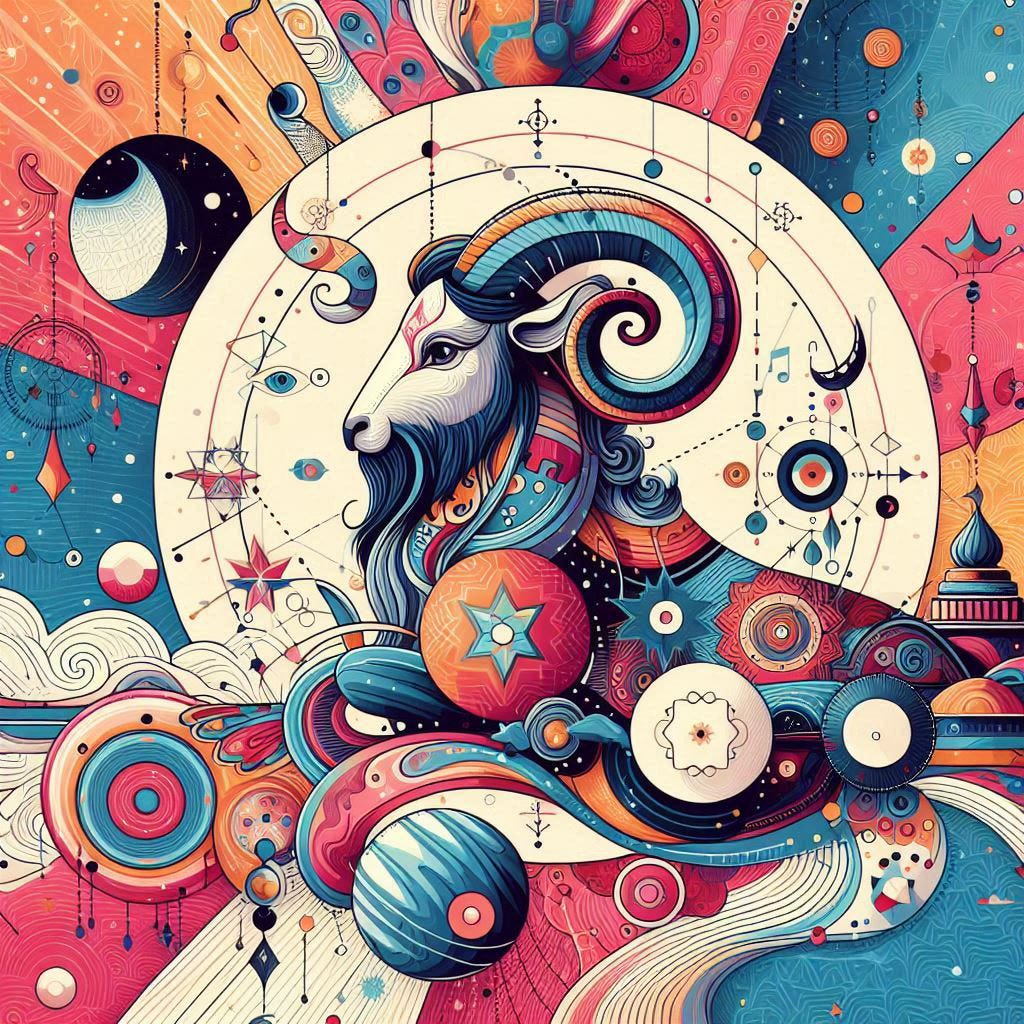🌟 Welcome, dear friends, to Agama’s Message by Agama Shakti!
This mini-series is a special journey into the world of Astrology ✨—unlike any of my other posts, but something I felt deeply called to share with you.
You can explore more such newsletters on Astrology by clicking the link/button below ⬇️
I truly hope you enjoy this mystical mini-series. 🌙🔮
When most people think of astrology, they often imagine horoscopes printed in magazines or zodiac signs like Aries, Leo, or Capricorn. This form of astrology, known as Western Astrology, is common in the United States and Europe. But there’s another powerful and ancient system known as Vedic Astrology or Jyotish Shastra—a sacred science from India, rooted in thousands of years of spiritual wisdom.
For those new to Vedic culture, understanding the difference between Vedic and Western astrology can open up a whole new world of insight. Let’s explore the key differences between the two systems in a simple, point-wise format.
1. Origin and Philosophy
Western Astrology is rooted in ancient Babylonian traditions and later developed through Greek and Roman cultures.
Vedic Astrology comes from the Vedas—the sacred texts of ancient India—and is considered a divine science passed down from sages.
2. Zodiac System Used
Western Astrology uses the Tropical Zodiac, which is based on the seasons and fixed to the position of the Sun during the spring equinox.
Vedic Astrology uses the Sidereal Zodiac, which aligns with the actual constellations in the sky. This makes it more astronomically accurate.
🪐 As a result, your zodiac sign may shift if you compare the two systems.
3. Focus of Interpretation
Western Astrology tends to be psychological, focusing on personality traits, inner emotions, and self-development.
Vedic Astrology is more predictive, offering clear guidance on life events such as career changes, marriage, finances, and spiritual growth.
4. Planetary Periods (Dasha System)
Western Astrology does not include a Dasha system.
Vedic Astrology includes a unique and powerful tool called the Dasha System, which maps out the timing of major life events over decades.
🕉️ The Dasha system is a major reason Vedic Astrology is renowned for its accuracy in prediction.
5. Role of the Moon
Western Astrology is Sun-centered; your "Sun Sign" is the one most people refer to.
Vedic Astrology places major importance on the Moon sign and Nakshatra (lunar mansion), which reflect the mind and emotional patterns.
🌕 In Vedic tradition, the Moon is seen as the heart of your inner world.
6. Remedies and Spiritual Tools
Western Astrology rarely offers spiritual remedies.
Vedic Astrology offers a rich system of remedies including mantras, gemstones, fasting, and rituals to harmonize your planetary energies.
🪔 This spiritual connection makes Vedic Astrology not just predictive, but healing.
7. Chart Calculation and Divisional Charts
Western Astrology uses a single natal chart.
Vedic Astrology uses multiple charts such as Navamsa (D9) and Dasamsa (D10) to give deeper layers of interpretation.
📜 Think of it like zooming into different dimensions of your life—marriage, career, spirituality, etc.
8. Cultural and Spiritual Connection
Western Astrology is often detached from religious or spiritual roots.
Vedic Astrology is deeply connected to Hindu philosophy, karma, and reincarnation.
🕉️ Every birth chart is seen as a map of your soul’s journey and karmic purpose.
Conclusion
Both Western and Vedic astrology have their own strengths, but if you're looking for precise life predictions, karmic understanding, and spiritual depth, Vedic Astrology offers a truly transformative experience. It’s not just a way to look at your future—it’s a way to understand your soul.
Want to Learn More or Book a Personal Reading?
If this has sparked your curiosity and you’d like to:
Get a personalized Vedic astrology consultation, or
Learn authentic Vedic Astrology step-by-step,
👉 Contact agamashakti@gmail.com or visit www.agamashakti.com
👉E-book on astrology Spiritual Astrology
Presented by Agama Shakti
Content written and produced by Vishal Rajput






This is a beautiful explanation, so useful and simple to understand.
Thank you for sharing your wonderful knowledge ✨🙏🏼💖